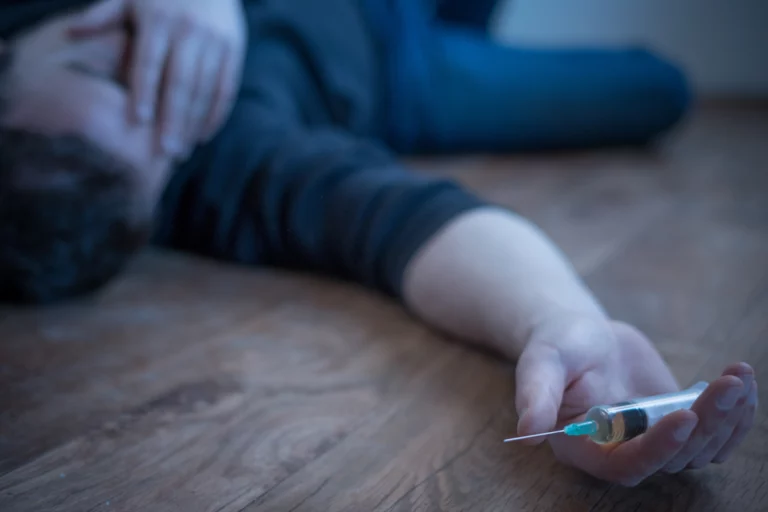What to Do When Someone With Bipolar Pushes You Away
You may be wondering what to do when someone with bipolar pushes you away. You may have witnessed firsthand how bipolar disorder affects a person, whether it be a family member or a friend. Bipolar disorder can cause a person to experience mood swings that last from several hours to days, depending on the severity. Some people experience periods of mania and energy, while others feel depressed and lethargic.
A person with bipolar disorder may have difficulty functioning or working when they experience severe mania or depression episodes. During these difficult times, your loved one might try to push you away. Your loved one may become upset with you for not understanding why they’re acting so strangely, or if they’re feeling particularly low, they may try to cut you off entirely.
This is a common response pattern among those with bipolar disorder, especially when they are experiencing a depressive episode. Your loved one might push away without meaning to abandon you. It is important to keep in mind that pushing away does not mean that your loved one does not care about you. You don’t want your loved one feeling even worse than they already do, and you may think that you are doing them harm if you try to reach out to them. However, there are methods you can use to let your loved one know that you care about them no matter what.

What is Bipolar Disorder?
Bipolar disorder, formerly known as manic depression, is a mental illness that produces extreme mood swings. When you become depressed, you may become sad or hopeless and lose interest in activities or hobbies you normally enjoy. When experiencing a manic episode, you become euphoric, energetic, or irritable. Mood swings may also cause sleep problems, low energy, lack of activity, poor judgment, impulsive behavior, and impaired thinking. Episodes of mood swings may occur at any time and some people may not experience any symptoms between episodes. There is no cure for bipolar disorder but, fortunately, you may successfully manage your mood swings and symptoms by adhering to a treatment plan that includes medications and psychotherapy.
Challenges and Symptoms of Bipolar Disorder
Many people with bipolar disorder experience both manic and depressive episodes. The moods fluctuate and the phases of depression are not always immediately followed by periods of mania, nor are the phases of mania always immediately followed by periods of depression. A person may experience the same mood on several occasions before experiencing the opposite mood, with periods of euthymia in between.
Mood changes from bipolar disorder can take place over a period of weeks, months, and sometimes even years. They may last for many days or weeks during a manic phase or many weeks or months during a depressive phase. The severity of mania or depression varied from person to person. Symptoms of mania include:
- Excitement
- Happiness
- Restlessness
- Sudden mood changes
- Rapid speech
- Increased energy
- Insomnia
- Impulsivity
- Poor judgment
- Reckless, risky behavior
- A grand sense of self
- Feelings of invincibility
- Hallucinations
- Delusions
Signs of a depressive episode include:
- Deep sadness
- Decreased energy
- Lack of motivation
- Feelings of helplessness
- Loss of interest in things once enjoyed
- Difficulty focusing
- Irritability
- Fatigue
- Sleeping excessively
- Changes in appetite
- Suicidal ideation

Challenges of Bipolar Disorder
There are some common challenges associated with bipolar disorder that everyone experiences differently. A number of people with bipolar disorder face relationship problems, choosing the right medication, and dealing with co-existing issues. By employing proactive tactics, you might be able to reduce the impact of these hurdles in your daily life. This may improve health outcomes and well-being in people with bipolar disorder. Common challenges include:
- Unpredictable Mood Swings
People with bipolar disorder frequently encounter difficulties when their moods shift rapidly. According to a study conducted in 2017, depressive symptoms are correlated with work impairment. On the job, people with bipolar disorder frequently suffer from social stigma, isolation, and interpersonal conflict in addition to the inability to properly function in the workplace.
- Relationship Challenges
A literature review published in 2021 determined the impact on couples when one partner has bipolar disorder. Self-sacrifice and caregiver burden were among the difficulties experienced by the non-bipolar partner. Sexual dissatisfaction, feelings of stigma, and relationship volatility were other issues that arose. Despite these issues, some couples forged closer bonds and expressed deeper commitments as a result of experiencing empathy, compassion, and resilience.
- Medication Side Effects
People struggling with bipolar disorder often require medication to help them manage their symptoms. However, getting the right drug and quantity can take a long time. Even when medication alleviates symptoms, it can cause serious side effects. According to the International Bipolar Foundation (IBPF), mental health professionals select medication based on patients’ needs and alter the dosage as needed. People report spending several years experimenting with various drug combinations before finding the right one. For those who desire to take certain medications, the addition of another drug may be required.
- Co-occurring Conditions
It is typical for people with bipolar disorder to suffer from other mental or physical illnesses including:
- post-traumatic stress disorder (PTSD)
- Psychosis
- Anxiety
- attention deficit hyperactivity disorder (ADHD)
- eating disorders
- substance abuse
The connection between bipolar disorder and other coexisting conditions can be complex. Substance abuse, for instance, may make bipolar disorder symptoms worse. A person with bipolar disorder or depression has an increased likelihood of developing PTSD than someone without these conditions, according to the DBSA. Those with these conditions are more inclined to experience a traumatic incident, and a mood disorder increases the risk of PTSD in those who live through trauma.

How to Help a Loved One with Bipolar Disorder
It is possible to successfully manage symptoms of bipolar disorder and handle the condition’s highs and lows with the proper treatment. Although watching a loved one struggle with the difficulties of bipolar disorder is difficult, there areways to help ease the burden.
Educate Yourself
The first thing you should do is become more educated about bipolar disorder. Having an understanding of the condition, including its causes and symptoms, will allow you to recognize patterns and address behaviors that result from it. Reading books, websites, and articles published by reputable sources can help you become better acquainted with your loved one’s bipolar disorder.
Listen
Your loved one’s bipolar disorder can be supported in several ways. You can listen to them and let them know that it’s okay to talk about their difficulties. It doesn’t matter if you don’t have all the answers—what matters is that you’re open to listening and offering support to what they’re feeling. Even if you don’t fully understand what they’re going through, you should avoid things like blaming or becoming angry.
Avoid taking the individual’s behavior personally, even if you become upset. During mania or depression phases, your loved one may behave in ways that are unexpected or even harmful. Your loved one may become irritable, aggressive, moody, hostile, or reckless. Remember that these symptoms are symptoms of the condition and not reflections on you. Your attitude can impact your loved one’s belief in their ability to cope and succeed as a source of support.
Get Involved
Your presence in your loved one’s treatment might be beneficial, but you should not feel responsible for correcting the problem. The treatment for bipolar disorder usually combines medication and therapy. Treatment for bipolar disorder can sometimes be difficult to predict. Mood swings may make treatment adherence more challenging, so being there for your loved one during those times may be especially crucial.
You can assist in helping them find proper treatment, spend time with them, and encourage adherence to medication guidelines.
Pay Attention
If you notice that your loved one’s symptoms have become more severe, discuss what might be helpful. This might include taking on some of their responsibilities while they are experiencing mania or depression. It might also involve helping them cope with the consequences of their symptoms by preventing them from accessing certain items while they are experiencing mania.
Be Prepared
It is crucial to be prepared for some of the more serious and damaging behaviors that occur when a loved one has bipolar disorder. Having a strategy can help you be ready to act when a circumstance occurs. For example, people may have suicidal thoughts during depressive episodes therefore, be sure to remove anything dangerous from the house if someone is having suicidal thoughts or they intend to self-harm.
Impulsivity is another common symptom of this disorder. This frequently leads to poor financial decisions and significant purchases that they later regret. Protect their financial well-being by taking charge of the household finances and credit cards when they exhibit such symptoms.
Establish Boundaries
It is critical to establish a boundary regarding how much you are willing and able to do in order to protect your mental health. It is important to be loving and supportive, but you must also know where to draw the line. You may need to establish healthy boundaries if you’re feeling overwhelmed, taken advantage of, controlled, angry, hurt, or frustrated.
Protect the Relationship
Managing symptoms of bipolar disorder can help preserve a person’s relationships. Without treatment, a person may experience difficult feelings and express behaviors such as hostility, irritability, and risk-taking actions that can negatively impact their relationships. Fortunately, taking preventive measures can help. By learning about the condition, recognizing indicators of manic or depressive episodes, supporting your loved one’s treatment, and taking good care of yourself, you can safeguard your relationship.
Take Care of Yourself
It’s imperative to look after your own well-being when supporting a loved one with bipolar disorder. Your loved one won’t be able to help much if you’re worn out and overwhelmed emotionally. Making sure to take time to yourself, finding people who can support you, staying firm on your set boundaries, and finding ways to manage your stress are all ways to take care of yourself while supporting a loved one who has bipolar disorder.

You Can Trust Durable Recovery
Your loved one’s bipolar disorder may make you feel concerned, sad, or guilty. Remember that this condition is neurological and that you did not cause it. Be supportive, but make sure to look after yourself, even if that means setting some boundaries with your loved one. It may be difficult, but finding a method to cope will help you and your loved one manage the symptoms of this condition.
The professionals at Durable Recovery are experienced in treating various mental disorders and are ready to assist you. To learn more about our treatment services and programs, contact us today. Our treatment specialists are available to answer any questions you may have.








